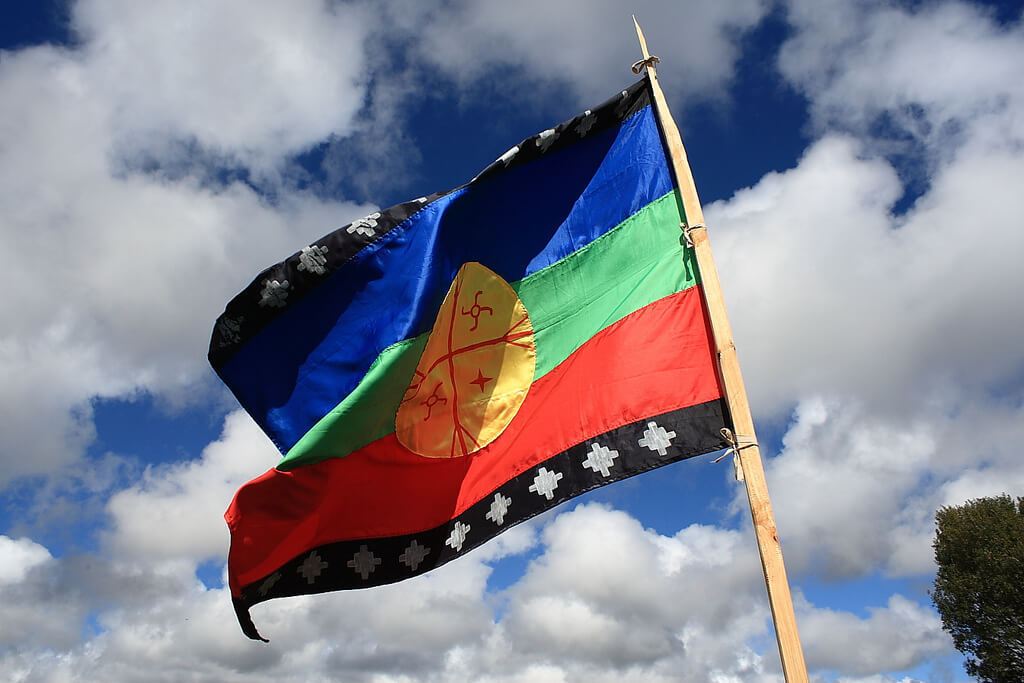WE TRIPANTU
“We Tripantu” (or “Winoy Tripantu”) means “rising of
the new sun,” and is a kind of new year celebration of the Mapuche people
(Argentina and Chile).
“tripan”: rise
“Antu”: Sun
Chilean Culture: “We Tripantu” & the Winter Solstice
This week marks the June solstice, which down here in
Chile means that the shortest day of winter is upon us. From here on out, the
days can only get brighter, and also start of the most intense rains that
nature prepares to welcome and encourage the wonderful growth of new life, a
fact that’s not lost on one of Chile’s most dominant indigenous communities,
the Mapuche people (“Mapu”: Earth, “che”: people). The winter solstice
coincides with the celebration of “We Tripantu”, where Mapuche communities up
and down the length of Chile welcome the birth of the new sun.
It is the beginning of a new cycle of production, talk
with Earth. Mapuche elders discovered that the beginning of every annual cycle
starts with the rain. It begins with the Moon of the cold buds: “puken”, the
winter. The rain that purifies the soil for the renewal of Nature and for the
beginning of the new sown dreams.
What’s it all about?
For Chile’s indigenous Mapuche people, “We Tripantu”
is a kind of New Year celebration. The coming of the shortest day and the
longest night symbolizes the end of the harvesting period of the previous year
and the beginning of the new sowing cycle. According to the Mapuche vision of
the world, the new sun is born in winter and begins to grow throughout the
spring before reaching the prime of its life at the height of summer and fading
away again as fall draws on. That’s what makes the winter solstice so important,
since it marks the moment of the sun’s rebirth.
“We Tripantu” celebrations may officially begin with
the winter solstice on the 21st of June but they well and truly kick off on the
evening of the 23rd of June, where family members and the extended community
gather together around a fire or stove to eat, drink and tell traditional
stories. Folk music is played throughout the night on Mapuche instruments like
the "tructruca" horn, the "pifilca" flute and the "cultrun" drum. As the first birds
begin to sing around dawn, people head down to nearby rivers and streams to
wash and cleanse away anything negative they’ve picked up throughout the year;
disease, evil thoughts, bad spirits... it all gets washed away with the river,
leaving bathers ready to be renewed by the young sun as it rises for the first
time that year.
During the morning the Mapuche takes a moment to walk
through the fields in order to get in touch with Nature and talk to the lands.
During this time girls take part in the "Katan" (a ceremony in which the ears are
pierced and are enclosed with their "chaway": pair of earrings). The maternal
grandmother gives her name to her granddaughter.
Also in this day of the “We Tripantu”, boys receive in
a ceremony of the "akutun", the name of their paternal grandfather.
Food
Food is an important part of any celebration and “We
Tripantu” is no exception. Meats - including chicken, pork, lamb, beef and even
horse - are roasted on the fire and traditional delicacies are prepared. Those
celebrating drink “muday”, a cloudy alcoholic drink made from fermented maize
or wheat and eat “catutos” (fried or boiled dough treats dipped in honey),
“sopaipillas” (deep-fried discs of pumpkin dough) and a kind of dense
unleavened bread cooked in the embers of the fire. “Mote”, made from boiled,
husked wheat, is also eaten to celebrate “We Tripantu”.
Sports, games and dancing
Throughout the day of the 24th June, adults and
children alike take part in games and dancing. Small children play “awar
kuden”, a betting game using colourful dried beans. Older children and
teenagers play “palin”, a game similar to hockey where two teams of five to
fifteen players used curved sticks to hit a leather ball. All members of the
community join in with traditional Mapuche dances like the “purrun” and the
“mazatun”.
“We tripantu”, or the Mapuche New Year, marks the
shift in seasons and the universe.
The New Sun arrived!!!
Happy New Year!!!



No comments:
Post a Comment